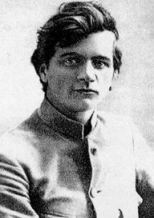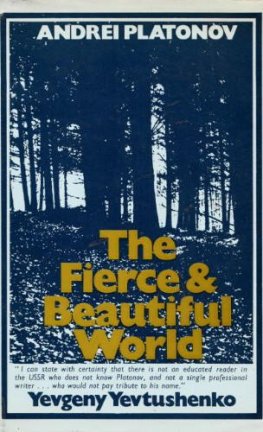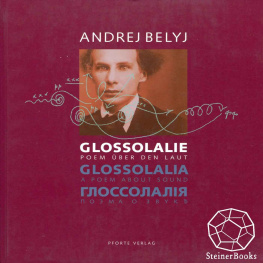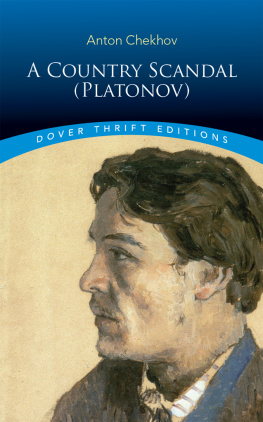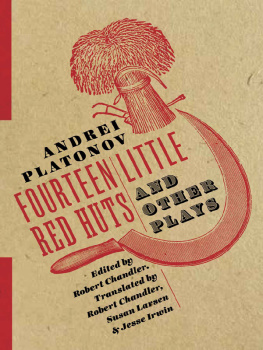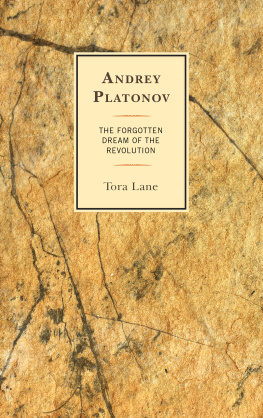Andrei Platonov - Soul and Other Stories
Here you can read online Andrei Platonov - Soul and Other Stories full text of the book (entire story) in english for free. Download pdf and epub, get meaning, cover and reviews about this ebook. year: 2013, publisher: Vintage, genre: Art. Description of the work, (preface) as well as reviews are available. Best literature library LitArk.com created for fans of good reading and offers a wide selection of genres:
Romance novel
Science fiction
Adventure
Detective
Science
History
Home and family
Prose
Art
Politics
Computer
Non-fiction
Religion
Business
Children
Humor
Choose a favorite category and find really read worthwhile books. Enjoy immersion in the world of imagination, feel the emotions of the characters or learn something new for yourself, make an fascinating discovery.
- Book:Soul and Other Stories
- Author:
- Publisher:Vintage
- Genre:
- Year:2013
- Rating:3 / 5
- Favourites:Add to favourites
- Your mark:
- 60
- 1
- 2
- 3
- 4
- 5
Soul and Other Stories: summary, description and annotation
We offer to read an annotation, description, summary or preface (depends on what the author of the book "Soul and Other Stories" wrote himself). If you haven't found the necessary information about the book — write in the comments, we will try to find it.
Soul and Other Stories — read online for free the complete book (whole text) full work
Below is the text of the book, divided by pages. System saving the place of the last page read, allows you to conveniently read the book "Soul and Other Stories" online for free, without having to search again every time where you left off. Put a bookmark, and you can go to the page where you finished reading at any time.
Font size:
Interval:
Bookmark:
Andrey Platonovich Platonov (18991951) was the son of a railway-worker and worked as a land reclamation expert. His most politically controversial works of the late 1920s and early 1930s, including The Foundation Pit and Chevengur, remained unpublished in Russia until the late 1980s. Other stories were published but subjected to vicious criticism. Stalin is reputed to have written scum in the margin of the story For Future Use, and to have said to Fadeyev (later to be secretary of the Writers Union), Give him a good belting for future use! From September 1942, after being recommended to the chief editor of Red Star by his friend Vasily Grossman, Platonov worked as a war correspondent and managed to publish several volumes of stories; after the war, however, he was again almost unable to publish. He died in 1951, of tuberculosis caught from his son whom Platonov had nursed on his return from the gulag. Happy Moscow, one of his finest short novels, was first published in 1991; a complete text of Soul was first published only in 1999.
There is probably no twentieth-century writer of Platonovs stature who is so little known in the English-speaking world. Those who do know his works, however, tend to be passionately enthusiastic, and many people have been generous with their time and knowledge. I am deeply grateful to everyone who has collaborated with me on different works, especially to Jane Chamberlain, Angela Livingstone, Olga Meerson and Eric Naiman. All of the following have also contributed in important ways: Lily Alexander, Susan Biver, Philip Bullock, Nadya Bourova, Lucy Chandler, Olive Classe, Valentina Coe, Elizabeth Cook, Musya Dmitrovskaya, Igor Golomstock, Katia Grigoruk, Philip Horowitz, Hamid Ismailov, Lena Kolesnikova, Natalya Kornienko (who has done more than anyone else to establish reliable texts of Platonovs work), Olga Kouznetsova, Nick Lera, Christopher MacLehose, David Macphail, Nina Malygina, Irina Mashinski, Chiara Meyer-Rieckl, Mark Miller, Natasha Perova, Ian Pindar, Natalya Poltavtseva (the author of the first book about Platonov to be published in the Soviet Union), Vania Schittenhelm, Trista Selous, Tim Sergay, Geoffrey Smith, Razia Sultanova, Peter Tegel, Zemfira Titovets, Valery Vyugin, Stuart Williams, Tony Wood, Yevgeny Yablokov.
Natalya Kornienko and other scholars from the Russian Academy of Sciences are working on an edition of Platonovs complete works, but only the first volume, of juvenilia, has so far been published. Existing publications of Platonovs major works often differ from one another, sometimes in important respects. We have in all cases followed texts established by Natalya Kornienko, as follows: Among Animals and Plants, as in the journal Rossiya, January 1998, pp. 7482; The Cow, as in Vsya zhizn (Moscow: Patriot, 1991), though we have incorporated a few sentences from earlier editions; The Return, as published in Vzyskanie Pogibshikh (Moscow: Shkola Press, 1995); Soul and the remaining stories as in A. P. Platonov, Proza (Moscow: Slovo, 1999), pp. 437534.
This translation of Fro is published here for the first time. Soul is reprinted, with a few changes, from Soul (London: Harvill, 2003); an earlier version of Among Animals and Plants was published in The Portable Platonov (Moscow: Glas, 1999) and this translation appeared in a shortened form in The New Yorker (2007); an earlier version of The Third Son was published in Russian Short Stories from Pushkin to Buida (London: Penguin, 2005); the remaining stories are reprinted from The Return (London: Harvill, 1999).
The following translations of Platonovs work are recommended:
The Hurdy-Gurdy (one of Platonovs finest plays), trans. Susan Larsen, in Theater (Fall 1989).
The Foundation Pit, trans. Robert Chandler and Geoffrey Smith (London: Harvill, 1996).
The Return, trans. Robert and Elizabeth Chandler and Angela Livingstone (London: Harvill, 1999).
Happy Moscow, trans. Robert and Elizabeth Chandler et al. (London: Harvill, 2001).
The wind got up in
the night and took our plans away.
(Chinese proverb)
THE POOR HAVE no residence. They have homes because they remember mothers or grandfathers or an aunt who brought them up. A residence is a fortress, not a story; it keeps the wild at bay. A residence needs walls. Nearly everyone among the poor dreams of a small residence, like dreaming of rest. However great the congestion, the poor live in the open, where they improvise, not residences, but places for themselves. These places are as much protagonists as their occupants; the places have their own lives to live and do not, like residences, wait on others. The poor live with the wind, with dampness, flying dust, silence, unbearable noise (sometimes with both; yes, thats possible), with ants, with large animals, with smells coming from the earth, rats, smoke, rain, vibrations from elsewhere, rumors, nightfall, and with each other. Between the inhabitants and these presences there are no clear marking lines. Inextricably confounded, they together make up the places life.
Twilight was setting in; the sky, wrapped in cool gray fog, was already being closed off by darkness; and the wind, after spending all day rustling stubble and bare bushes that had gone dead in preparation for winter, now lay itself down in still, low places of the earth...
The poor are collectively unseizable. They are not only the majority on the planet, they are everywhere and the smallest event speaks of them. This is why the essential activity of the rich today is the building of wallswalls of concrete, of electronic surveillance, of missile barrages, minefields, frontier controls, and opaque media screens.
The lives of the poor are mostly grief, interrupted by moments of illumination. Each life has its own propensity for illumination and no two are the same. (Conformism is a habit cultivated by the well-off.) Illuminated moments arrive by way of tenderness and lovethe consolation of being recognized and needed and embraced for being what one suddenly is! Other moments are illuminated by an intuition, despite everything, that the human species serves for something.
Nazar, tell me something or othersomething more important than anything.
Aidym turned down the wick in the lamp in order to use less paraffin. She understood that, since there was something or other in life that was more important than anything, it was essential to take care of every good that there was.
I dont know the thing that really matters, Aidym, said Chagataev. I havent thought about it, Ive never had time. But if weve both of us been born, then there must be something in us that really matters.
Aidym agreed: A little that does matter... and a lot that doesnt.
Aidym prepared supper. She took a flatbread out of a sack, spread it with sheeps fat and broke it in half. She gave Chagataev the big half, and took the small half herself. They silently chewed their food by the weak light of the lamp. In the Ust-Yurt and the desert it was quiet, uncertain and dark.
From time to time despair enters into the lives which are mostly grief. Despair is the emotion which follows a sense of betrayal. A hope against hope (which is still far from a promise) collapses or is collapsed; despair fills the space in the soul which was occupied by that hope. Despair has nothing to do with nihilism.
Nihilism, in its contemporary sense, is the refusal to believe in any scale of priorities beyond the pursuit of profit, considered as the end-all of social activity, so that, precisely: everything has its price. Nihilism is resignation before the contention that Price is all. It is the most current form of human cowardice. But not one to which the poor often succumb.
Font size:
Interval:
Bookmark:
Similar books «Soul and Other Stories»
Look at similar books to Soul and Other Stories. We have selected literature similar in name and meaning in the hope of providing readers with more options to find new, interesting, not yet read works.
Discussion, reviews of the book Soul and Other Stories and just readers' own opinions. Leave your comments, write what you think about the work, its meaning or the main characters. Specify what exactly you liked and what you didn't like, and why you think so.


